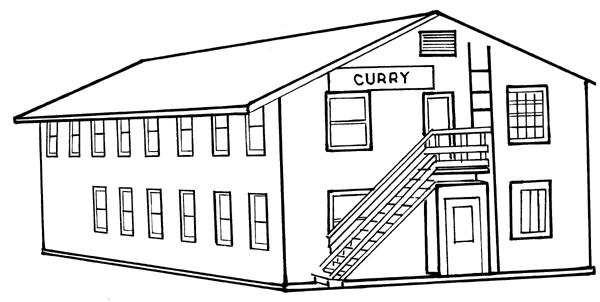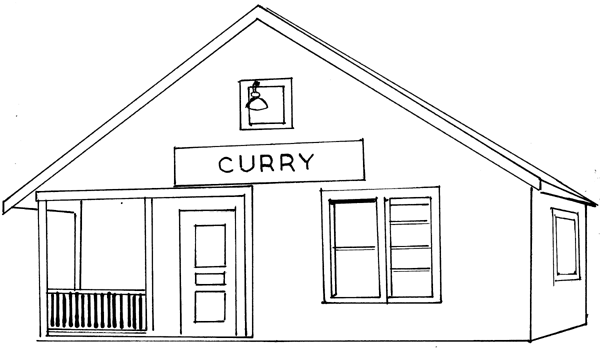
SUBSTITUTE HOTEL
Part of Dad's decision to leave Curry was the fact that the local teacher hated Dad and took it out on us kids. When she first came to Curry, she announced what she expected from Dad, in the way of physical provisions. With the [original] hotel inventory being accountable U.S Government property, he explained that he didn't have the authority to part with what she wanted. She never forgave him for that.
She was the daughter of missionaries in South America and was accustomed to "Christian charity" as a mandate. Coming from her adventures in primitive areas, she was also in the habit of judging 'lesser people.' Given the cultural norms of the period; my mom being an alcoholic condemned us kids to her maltreatment, as well. Our welfare factored heavily into the decision to leave. Getting clear of that gal was quite a treat! The school was down to six pupils, before we left.
During the summer, following the fire, the Railroad had converted the southern-most old barracks building into a makeshift hotel and restaurant. Dad continued operating the lease. The Railroad took out the partitions on half the lower floor, putting in a counter and small electric grill. That area also doubled as the "bar." The upstairs rooms became the rental rooms, housing the ACS guys, primarily. There may have been 20 rooms, in all.

SUBSTITUTE HOTEL
While there is an interesting account of the history of the building, Army veterans would recognize the building as a 'standard' W.W.I military barracks. Supposedly, it was modified from a much fancier building, shipped in and rebuilt. For my money, it was only an old barracks building, with partitions added, to form individual rooms.
Following the hotel fire, there was only a pile of ashes, the cement foundation, the kitchen cement floor, with the cement-enclosed wood storage room, directly below. Two smokestacks still remained standing; one at the kitchen and the lobby fireplace. The steel railroad signal tower was still standing, also.
I was briefly able to explore the hotel remains – before the Railroad plowed the last remains of the hotel into the river. It was like visiting someone's grave. Amazingly, the wood in the 'wood room' (converted from the old coal room) didn't burn; and I discovered my partially melted nylon winter parka – don't ask me why I left it there.
The Railroad also tore down the old foot-bridge, and pulled down the 100-foot water tower, cutting it up and hauling the steel to Anchorage.
One of the "row houses" was converted into a new train station, post office and ACS office.

NEW TRAIN STATION